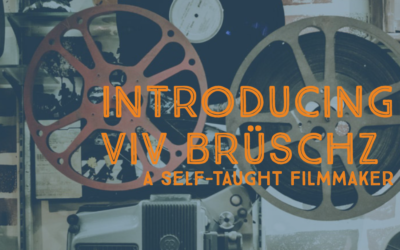How did you get inspired to become a filmmaker?
A sheer love of film and the film making process inspired me to learn the tools of filmmaking. Being able to tell a story and unexpectedly having a story to tell inspired me to put them to use. On March 16, 2015, two days after I winning the Gold medal at the Military National Powerlifting competition in Atlanta, I was scheduled for a followup to a biopsy I underwent two weeks prior. I sat in the waiting room without a care in the world, busily editing footage from the meet on my smart phone, trying to come up with the perfect title so that I could post it to social media that afternoon. I was actually so engulfed in what I was doing that I didn’t realize I had been sitting there for almost two hours – nearly enough time to complete my project. When the doctor finally called my name, I was so anxious to finish what I had started, that I was irritated that she had the audacity interrupt. As I followed the doctor back to her office, she made light conversation; the usual remarks about the weather and other trivialities that I didn’t bother to remember. Her words quickly became background noise behind thoughts of what to name my new video. Since my goal was to achieve a 600 pound deadlift by the end of the season, I knew I wanted to include that number in the title somehow. But how? I was stumped. Then out of the murky pool of sound coming from the doctor’s direction, I heard the phrase “You have cancer” ring out as clearly as any I had ever heard. I replied “okay” in a casual tone that matched hers as my brain switched on the autopilot. I spoke very little, facing her with my eyes open as if actually hearing what she was telling me. But I only heard my own thoughts. The air in the room had been somehow replaced by water and I was drowning in the tears running down my cheeks. Cancer is for sick people and I’m not sick. I just won a Gold Medal in Powerlifting for Christ’s sake! How could this be? Then, amidst the torrent of death and darkness swirling violently around my mind, there was a light. A tiny blue light to be exact. I looked down and noticed that my right hand had decided on its own to point my camera phone at my face and start recording. The footage that it captured would define my vision. In an instant, what was supposed to be a simple niche video about a powerlifting competition became a compelling and inspirational story. It became a real life drama about the choices we make and their potential consequences. It became a quest to achieve a goal even in the face of impending doom. It became last season’s seven part series, Chasing 600, where I dealt with the realities of my diagnosis. This season’s series, Beyond the Six, picks up where Chasing 600 left off, dealing with the various physical and emotional aspects of recovery from an athlete’s perspective.
What is your favorite part about the short film form?
I love it because it allows me to tell a story in small, but fairly dense chunks that add up to a larger picture.
Who were the people that supported the making of this film?
My family and girlfriend were hands down the most supportive in the making of the film as well as the emotional support that my condition demanded.
What resources do you use as a filmmaker? Music, locations, props, editing, crew, etc.
I operate on a micro scale. My locations are dictated by my competition schedule and take me all over the country. So far this year, I have filmed in Columbus, Orlando and Denver; with planned stops in Atlanta and as far away as St. Croix! The majority of the footage is hand-held and unplanned, as events happen unexpectedly. In post, narration and original music is written and recorded to fit the feel of the particular episode. Each episode is edited and complete in about three weeks following a competition to keep pace with the real-time feel of the season.
What is your next project?
Beyond the Six: Chapter 3 is currently in production and it deals with the difficult subject of sexual recovery after prostate surgery.
What advice would you give new filmmakers?
Don’t get overly caught up in equipment. Focus on the story. If it is compelling, unique and interesting enough; no one will care what camera or software you used to make it.
Watch Beyond the Six Chapter 1 competing in Webisodes Video Contest.
Follow Ken Bray on Instagram and Youtube
The Audience Awards provides filmmakers opportunities to create short video content for brands and win money. Sign up today for your free account and join film’s community.




